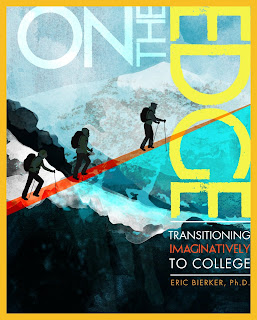Publishing A Book
Great news. I bit the bullet and got my book published in hard copy today. Just pulled that tooth once and for all. Swiftly slammed that door with a string. I had to put in the yellow borders on Paint Shop Pro to create a buffer like a DMZ to protect the lettering that was getting consumed on the cover in the formatting software on Lulu. Worked like a charm. Taking that ILT web development and publishing class in the Temple Doctoral program has paid many dividends. I know it was probably not the best solution but I did what I could.
Not bad after months of wringing my hands. Either wring the hands or put the hands to work. Same energy expended. Worry or work. By the way, I was at Fort Ticonderoga in New York in New York State (a Revolutionary War Fort) as a kid and saw a musket ball on museum display with teeth marks in it. The aftermath of surgery without anesthetic. No biting bullets for me. Laughing Gas por favor.
Although writing and publishing the book has been sort of tortuous.
C.S. Lewis makes a profound comment about pain: All the major religions began, as Lewis puts it, in a world before chloroform – which means, in a world without real pain relief. So belief in God and the existence of pain were not mutually exclusive. We often find God is pain and become atheists in pleasure. I have a very good friend who is a screenwriter and filmmaker and he speaks of the work as great and grueling. Most great work is grueling. Even if you can't see the teeth marks.
Here are some lessons learned about writing and publishing in this 21st century arena:
- Don't bother trying to find a traditional publisher. Even if you get signed, you still get shafted. I have an acquaintance who co-wrote a book and has sold 40,000 copies and has made $ 4,000. That just ain't right. Plus, his writing no longer belongs to him unless the publisher drops the title. Traditional publishing is Middle Ages. There is the guild of those who have professional acumen, but honestly the experts have been wrong so many times about great writing, that they hardly have credibility automatically as a result of their monopolistic perch.
- A lot of people think they are good or great writers but in fact are not. In our instant media, like instant coffee, almost anyone can make a cup but it often tastes like crud. Instant successes are a myth. Most who make it have paid with their soul. If you haven't sacrificed much, and/or have not the true talent, find an endeavor where your giftedness is more gold and less garbage. That porno-book Shades of Grey probably has something going for it on top of the steamy sex. Maybe not. I think I am a decent writer.
- Hire a professional editor instead of your wife or friend that got an "A" is freshman high school English. You want your editor to beat your book to the ground and see if it gets up or not like Rocky Balboa. Better to front load the roundhouse rather than be knocked out later.
- Don't pay a company to produce your ebook on Kindle. Seriously, although Amazon does not make it real easy to figure out how to do it, stick with it. The real key is formatting. In the end, great writing and clean formatting will let your book shine. Bad formatting ruins the sunniest of books so take the time to figure it out on the Kindle site. Formatting of course won't save a badly written book. It is still literary roadkill no matter if it is washed and quartered nicely.
- Don't go with CreateSpace from Amazon unless you want your hard copy book boycotted from every other online bookseller or brick and mortar bookstore. The Amazon imprint spells death for hard copy books unless you plan to sell exclusively through the e-Leviathan. Some bookstores may pick-up Amazon imprints that are used but it will be a distasteful experience for them. Some, like Socrates, would rather drink the hemlock. Do makes sure that your publisher works with Amazon. It has gravity. Ignoring it or being exclusive is not wise for the hard copy. Ebooks are owned by Kindle. Even Apple has a Kindle app. It is on every devise except B & N Nook which is doomed.
- Don't buy into the package deals where self-publishing firms offer you a macro-price to edit, type-set, print, and market your books. There is another word for that: Waste. Contract out each phase to someone who has expertise in that specific arena if needed. After several weeks of working with a sales rep from Lulu, the company I finally decided to work with, I just decided to cut to the chase and do it myself. He was making it much more complicated than it should have been so that he could lather up the pricing. Plus, he called me at work against my direct request not to and then didn't reply to my emails for a week. Over and done.
Once I got down to it, downloading the files and pics was a breeze. Lulu seems the best out there. Tried to work with AuthorHouse (never returned emails), CreateSpace (until I figured out it was the kiss of death) Mira Publishing (whose website wasn't working consistently), and Blurb (better for books to be given to friends and family--they don't work with booksellers/retailers, which means you become the warehouse and mailing agent).
There you have it. I am ready Oprah for my interview. Don't worry, my book is legit.



Comments